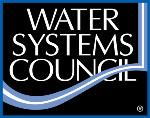
WSC Weighs In on Proposed Regulations in Florida and North Carolina
WSC recently submitted comments on two proposed Florida regulations. The Florida Ground Water Association (FGWA) alerted WSC about the proposed regulations and WSC worked with the FGWA to draft comments on the proposed rules.
The two proposed regulations contain similar prohibitions or restrictions on the construction or use of private residential irrigation wells. Private residential irrigation wells form an important part of the business of many Florida water well contractors.
The Outstanding Florida Springs (OFS) Rulemaking includes a condition that prohibits “new water use authorization for withdrawals from private residential irrigation wells constructed in the Upper Floridian Aquifer” after the effective date of the regulation “where a lower quality water source is available for irrigation, or public supply or reclaimed water is available at or immediately adjacent to the property boundary.” Under this rule, the private residential irrigation wells may be constructed, but not used, in many cases.
The Recovery Strategy for the Lower Santa Fe and Ichetucknee Rivers and Associated Priority Springs (LSFIR) minimum flows (MFLs) Rulemaking includes a provision that prohibits the construction of any “new private residential irrigation wells used solely for irrigation” in the Floridian Aquifer after the effective date of the rules “where a lower quality water source is available, or public water or reclaimed water is available at or immediately adjacent to the property boundary at the time of the well construction.” Under this rule, private residential irrigation wells may not be constructed in many cases.
Given that lower-quality water sources are likely not available, these provisions equate to a mandatory connection rule. The WSC comments focused on the advantages of decentralized private residential irrigation wells over centralized public water. In addition, the comments detailed regulations in other states that allow private residential irrigation, recognizing the benefits of these systems.
WSC will continue to work with the FGWA to raise awareness about the advantages of private domestic wells and private residential irrigation wells over centralized public water. We will also keep our members informed. The participation of all members of the industry in these processes is important to maintain the viability of decentralized private water systems.
Water Systems Council Engaged in Union County, North Carolina Proposed Rule Changes
Regulators in Union County, North Carolina, surprised water well contractors with proposed changes in the residential construction process. Apparently prompted by a single issue with water well quality, the Environmental Health Director for the county proposed to construct the water well earlier in the building construction process so that water testing could be conducted and the water verified by the county to be potable.
A certificate of occupancy would not be issued until the water testing shows that the water is potable and complies with U.S. Environmental Protection Agency primary drinking water standards. Any water treatment equipment, maintenance, testing, etc., would be the homeowner’s responsibility.
This change in process would create difficulties for the homeowner and water well contractors. Water well contractors are backlogged, so it would take time to get a well installed. Once the well is installed, there would be no electrical power at the site to pull samples. Generators do not work well for pulling samples. Laboratories take 4-6 weeks to get samples analyzed, further delaying construction. If multiple attempts at treatment are needed, the delay could be months. In addition, U.S. Environmental Protection Agency standards are not legally applicable to private water wells. The homeowner makes the determination of what type of treatment, if any, is needed.
WSC Executive Director Margaret Martens attended the first meeting organized by the county and limited to water well contractors in August. A large number of contractors attended, asked a number of questions, and expressed concerns about the impact of the implementation of the proposal.
Questions also arose as to the authority of the county to impose these requirements. A recent letter opinion by the State Office of the Fire Marshal indicates that the local health department can only provide information and recommendations to the private well owner, not mandate treatment. If the well has been constructed or repaired pursuant to state requirements, the local health department must issue a certificate of completion.
WSC will continue to work with the North Carolina Ground Water Association to follow these developments and ensure that government officials are aware of the practical implications of this proposal. We will advise the membership of further developments.
 Water Systems Council
Water Systems Council
